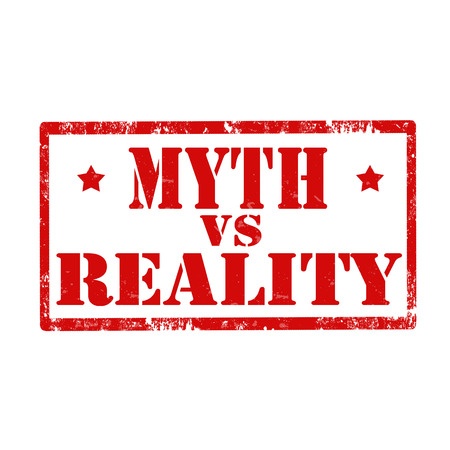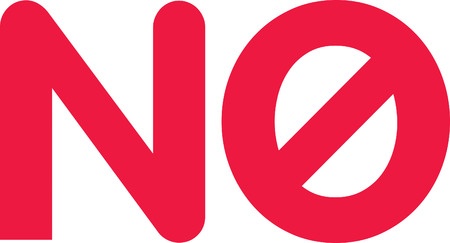Employment History vs. Modern Executive Resume
If you want to get an employer’s attention, don’t send them an employment history. Send them a results-driven, easy-to-scan executive resume.
While many people think they are one and the same.
They’re not.
The reaction they get from employers isn’t the same either.
Here are a few reasons why.
Old-School Executive Resume (Employment History)
6 Common Job Search Myths (And How To Shatter Them)
There’s a lot of career advice online. I’ve certainly written my share. Despite all the easily accessible career information, several myths seem to remain.
The most obvious is that the best way to find a job is to apply for as many employment ads as possible. It’s not. Spending all day working the job boards is unlikely to land you a job.
Creating a list of target employers and strategically networking your way into the company will yield better results.
Here are 6 common job search myths that continue to persist.
#1 You can’t get a job through social media.
While you may not get hired by sending a tweet, employers are increasingly turning to social media for recruiting purposes. Corporate and contingency recruiters have been on social media for years. Many post jobs on LinkedIn, Facebook, and even twitter.
How To Write A Resume That Generates Calls
There are a several elements that make one resume more effective than another. First, a resume needs to grab the reader’s attention. It needs to present what the candidate has to offer right up front. It also needs to sell the candidate to the recruiter and hiring manager.
A 2012 study done by TheLadders found that you need to get a recruiters attention fast. The results of their eye-scanning study showed that recruiters made a yes or no decision in less than 6 seconds.
Think A Little White Lie Won’t Matter? Don’t.
Many people embellish the truth a little on their resume. Most common is when candidates “clump” all of the jobs at a single company under their current and, probably, highest position.
A reputable resume writer will warn his or her clients not to do this. However, it happens all the time.
If you’re considering exaggerating on your resume. Don’t.
Getting caught in a little white lie will likely put you out of the running.
The majority of employers said that discovering a lie on a candidate’s resume might derail his or her chances of being hired according to survey conducted by CareerBuilder.
5 Musts Before Starting Your Job Search
Like most things, a key element of job search success is planning. Unfortunately, many job seekers just jump right in. They begin looking at job ads and internal opportunities.
Bad idea.
Most people wouldn’t just put their home on the market without some planning. They would consider different neighborhoods, maybe research realtors, and evaluate mortgage rates. They would appraise their home and find out what they should repair or replace to get top dollar.
Yet every day, people decide that today they’re going to start looking for a new job. Once they find a few exciting opportunities they dust off their old resume and realize it needs an overhaul.
They quickly find that jumping into a job search without planning doesn’t lead to success. Here are 5 things you need to do before you begin your job search.
Don’t Get Caught Off Guard Without A Resume
Today every job is temporary. When our parents, or grandparents, were in the workforce it wasn’t uncommon to have a job for 20 years. That’s not true today.
Even if you’re one of the lucky ones who’s never been laid off or fired that doesn’t necessarily mean job security is a sure thing.
We’ve had a local cable news program covering Fairfield County CT for over 30 years. Last year, a European telecommunications company bought our local cable company. Last month, they announced that they are closing the production studio to New Jersey.
So the “as local as local news gets” station is going to be coming from a production studio 2 states away.
Where Recruiters Look First When Reviewing Your Resume
You probably already know that recruiters don’t spend much time reviewing each resume. Hiring managers don’t either. So by all accounts your need to get their attention fast.
The often referred to study done by The Ladders found recruiters reviewed resumes for 6 seconds before making a decision.
When I was recruiting I spent more than 6 seconds reviewing candidate resumes before making a decision whether or not to contact them for an interview. The recruiters I know spend more than 6 seconds too.
4 Things You Must Include On Your Executive Resume
In many respects your executive resume is your calling card. While having supplements like an Infographic resume and online portfolio, an executive resume is often what gets you in the door. To help make that happen make sure that it’s searchable and doesn’t raise any red flags.
There are a lot of candidates competing for each role. Getting the attention of a recruiter or hiring manager isn’t easy. When you do you don’t want to blow your chances.
While on a content is king, there are many other things to consider as well.
4 Essential Executive Resume Components
Skills Summary
Today keywords are essential. Having a keyword-rich executive resume will help your resume pass the ATS evaluation. It will help you engage a recruiter as he or she quickly scans your resume as well.
5 Things NOT To Include On Your Resume
There are dozens of articles on how to write a winning resume. I’ve written many myself. But, what every professional resume writer knows is it’s also essential to understand what NOT to include.
HR professionals, for example, don’t want to see photos because they’re concerned about possible discrimination charges down the road. Unless you’re a recent grad, there’s no reason to include your college and/university graduation dates. Doing so will advertise your age. Here are five other things not to include on your resume.
Typos
It should go without saying, but typos can be the kiss of death. One misspelling may not take you out of the running, but several probably will. Read your resume several times. Read it backwards to catch any words that don’t fit, like Microsoft Office Sweet.
Fluff
Fluffy statements and generic wording won’t get you far. No need to say you’re highly educated. One of the first things a recruiter will look at is your education. Same goes with clichés like “excellent communication skills” and “team-player.” Instead, give examples that demonstrate your communication skills, like “successfully negotiated faster payment terms . . .”
5 Ways To Improve Your Executive Resume
While it’s true that in resumes “content is king” most of us are very visual. Because of this tendency a boring, poorly formatted resume isn’t likely to attract the attention of recruiters or hiring managers. Let alone the new HR associate who may be the first person to see your documents at all.
You don’t need to be a professional to make your resume easy-to-read and add a little punch. Here are five easy ways to transform your resume from muddled to refined.
Add Sections
Resume content should be presented in sections that are delineated in some way. For example Professional Experience, Education, Skills, etc. separated by lines. This can be done easily by using the Borders & Shading function in Microsoft Word.
Adding some formatting to your resume will make it easier for recruiters and hiring managers to read.










